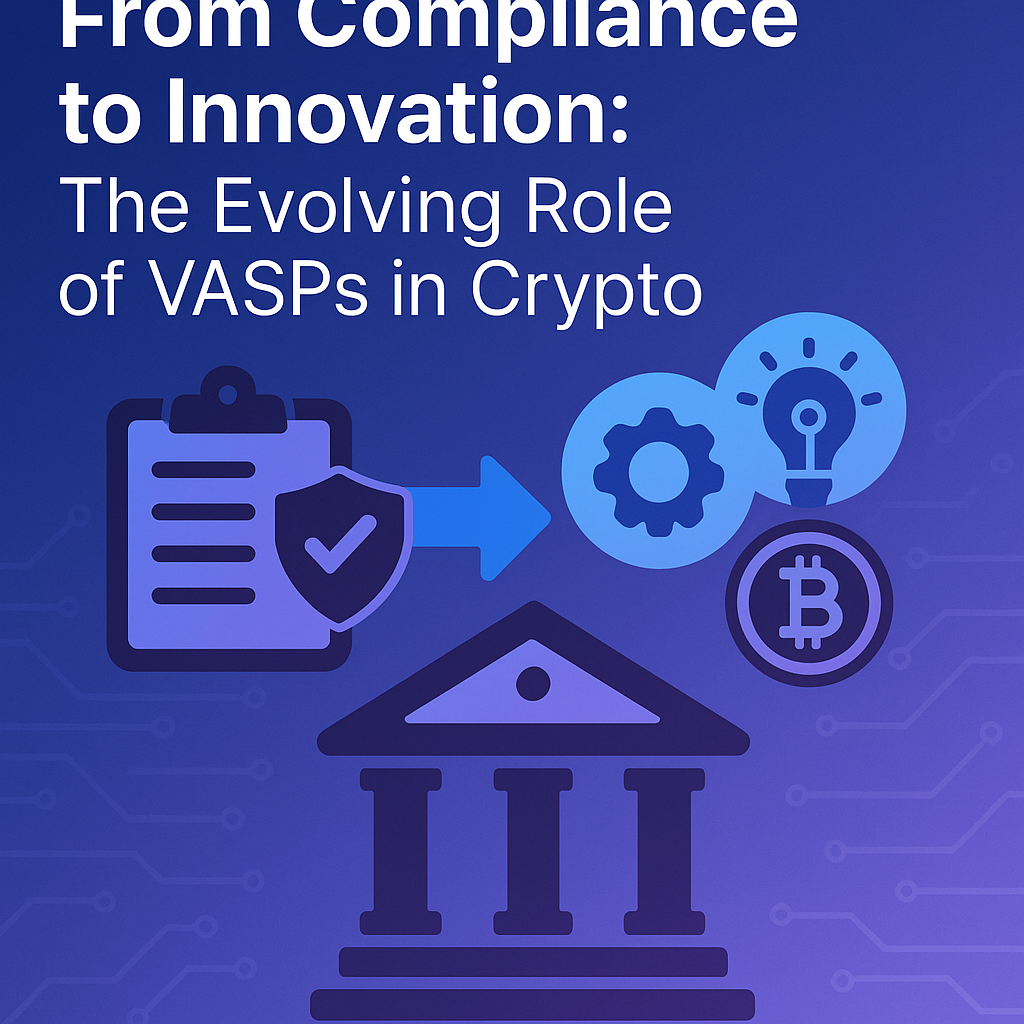
In the rapidly changing landscape of cryptocurrencies, Virtual Asset Service Providers (VASPs) have become essential players. Their roles have evolved significantly, shifting from mere compliance facilitators to innovators in the sector. This article explores the multifaceted functions of VASPs and how they are adapting to the demands of a regulatory environment while fostering innovation.
What are VASPs?
VASPs refer to entities that facilitate the exchange of virtual assets. This category includes exchanges, wallet providers, and other services that engage with cryptocurrencies. With the rise of digital currencies, VASPs have found themselves operating in a complex regulatory environment.
Compliance: The Foundation of Trust
Understanding Compliance Requirements
The primary function of VASPs initially centered around compliance with various regulations, including anti-money laundering (AML) and know your customer (KYC) mandates. The Financial Action Task Force (FATF) guidelines have further shaped these compliance demands, leading VASPs to implement robust protocols.
Building Customer Trust
By adhering to compliance measures, VASPs contribute to the legitimacy of the crypto market. This trust is crucial for attracting both retail and institutional investors.
The Shift Towards Innovation
Leveraging Technology for Enhanced Services
As compliance becomes a standard practice, many VASPs are now focusing on technology to enhance their service offerings. Innovations such as decentralized finance (DeFi) applications, non-fungible tokens (NFTs), and blockchain integrations are becoming integral to their operations.
Collaborations and Partnerships
VASPs are increasingly collaborating with fintech companies to offer innovative solutions. These partnerships facilitate the development of new products and services, fostering a competitive edge in a crowded market.
Case Studies: VASPs Leading the Charge
Example 1: Binance
Binance has transitioned from a simple exchange to a comprehensive platform that includes staking, lending, and DeFi services. By innovating continuously, they have adapted to regulatory changes while expanding their product offerings.
Example 2: Coinbase
Coinbase has embraced compliance while also investing heavily in education and user-friendly interfaces. This strategy not only meets compliance needs but also improves user experience and engagement.
Related Searches
- Evolution of VASPs in Cryptocurrency
- Regulatory Impact on Virtual Asset Service Providers
- Innovations in the Crypto Industry
- Role of Compliance in Financial Technology
FAQs
What is the main role of VASPs?
VASPs facilitate the exchange of virtual assets and ensure adherence to regulatory compliance.
How are VASPs adapting to regulatory changes?
VASPs are developing sophisticated compliance protocols and investing in technology to meet evolving regulations.
Why is innovation important for VASPs?
Innovation helps VASPs differentiate themselves in a competitive market while providing better services to customers.
Conclusion
The role of VASPs has transitioned from compliance-centric entities to innovative players in the crypto ecosystem. As these service providers navigate regulatory challenges, they continue to enhance their offerings, ultimately contributing to a more robust and trustworthy digital currency market. The future of VASPs will likely involve a harmonious blend of compliance and innovation, setting the stage for the next era of cryptocurrencies.
#Compliance #Innovation #Evolving #Role #VASPs #Crypto

